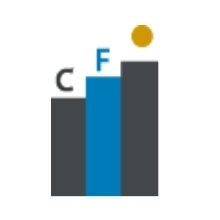

World Bank's Center of Excellence on Cooperative Financial Institutions (CoE-CFI)
| Member | Action | Date |
|---|---|---|
|
|
attach
in
CFI Symposium 2023
Session2-RelatedDocument-GonzaloTapia-16Nov2023.pdf
CFI Symposium 2023
Show more
|
Nov 16 2023, 12:27 PM |
|
|
attach
in
CFI Symposium 2023
Session2-MarthaNuryBeltran-16Nov2023.pdf
CFI Symposium 2023
Show more
|
Nov 16 2023, 12:00 PM |
|
|
attach
in
CFI Symposium 2023
Session2-JorgeVallePerez-16Nov2023.pdf
CFI Symposium 2023
Show more
|
Nov 16 2023, 11:59 AM |
|
|
attach
in
CFI Symposium 2023
Session1-Samadine-Kiriwandeniya-Sanasa.pdf
CFI Symposium 2023
Show more
|
Nov 16 2023, 11:59 AM |
|
|
attach
in
CFI Symposium 2023
Session1-HansGroeneveld-16Nov2023.pdf
CFI Symposium 2023
Show more
|
Nov 16 2023, 11:59 AM |
|
|
attach
in
CFI Symposium 2023
Session2-GonzaloTapia-16Nov23.pdf
CFI Symposium 2023
Show more
|
Nov 16 2023, 11:47 AM |
|
|
attach
in
CFI Symposium 2023
Flyer-CFI2023-es.pdf
CFI Symposium 2023
Show more
|
Nov 09 2023, 11:10 AM |
|
|
attach
in
CFI Symposium 2023
Flyer-CFI2023-fr.pdf
CFI Symposium 2023
Show more
|
Nov 09 2023, 11:10 AM |
|
|
attach
in
CFI Symposium 2023
Flyer-CFI2023-en.pdf
CFI Symposium 2023
Show more
|
Nov 09 2023, 11:09 AM |
|
|
Posted
in
File Library
CFI Symposium 2023
Show more
|
Oct 27 2023, 11:32 AM |